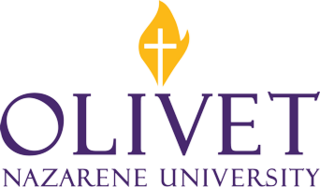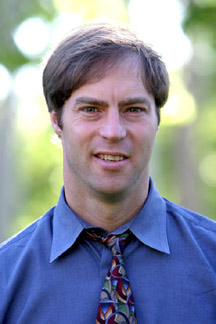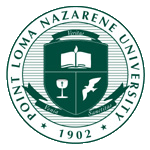Related Research Articles

Theodosius Grigorievich Dobzhansky was an American geneticist and evolutionary biologist. He was a central figure in the field of evolutionary biology for his work in shaping the modern synthesis and also popular for his support and promotion of theistic evolution as a practicing Christian. Born in the Russian Empire, Dobzhansky emigrated to the United States in 1927, aged 27.

Theistic evolution, alternatively called evolutionary creationism, is a view that God acts and creates through laws of nature. Here, God is taken as the primary cause while natural causes are secondary, positing that the concept of God and religious beliefs are compatible with the findings of modern science, including evolution. Theistic evolution is not in itself a scientific theory, but includes a range of views about how science relates to religious beliefs and the extent to which God intervenes. It rejects the strict creationist doctrines of special creation, but can include beliefs such as creation of the human soul. Modern theistic evolution accepts the general scientific consensus on the age of the Earth, the age of the universe, the Big Bang, the origin of the Solar System, the origin of life, and evolution.

Olivet Nazarene University (ONU) is a private Nazarene university in Bourbonnais, Illinois. Named for its founding location, Olivet, Illinois, ONU was originally established as a grammar school in east-central Illinois in 1907. In the late 1930s, it moved to the campus in Bourbonnais. The university is affiliated with the Church of the Nazarene and is the annual site of the church's Regional Celebrate Life youth gathering for the Central USA Region.

Stephen C. Meyer is an American author and former educator. He is an advocate of intelligent design, a pseudoscientific creationist argument for the existence of God and helped found the Center for Science and Culture (CSC) of the Discovery Institute (DI), which is the main organization behind the intelligent design movement. Before joining the DI, Meyer was a professor at Whitworth College. Meyer is a senior fellow of the DI and director of the CSC.

Michael Ruse is a British-born Canadian philosopher of science who specializes in the philosophy of biology and works on the relationship between science and religion, the creation–evolution controversy, and the demarcation problem within science. Ruse currently teaches at Florida State University.

Point Loma Nazarene University (PLNU) is a private Christian liberal arts college with its main campus on the Point Loma oceanfront in San Diego, California, United States. It was founded in 1902 as a Bible college by the Church of the Nazarene.
Richard G. Colling is a former professor of biology and chairman of the biological sciences department at Olivet Nazarene University in Bourbonnais, Illinois, who was barred from teaching general biology after writing a book that attempts to reconcile Christian belief with a scientific understanding of evolution.
Karl Willard Giberson is a Canadian physicist, scholar, and author, specializing in the creation–evolution debate. He has held a teaching post since 1984, written several books, and been a member of various academic and scientific organizations. He formerly served as vice president of the BioLogos Foundation.

Jerry Allen Coyne is an American biologist and skeptic known for his work on speciation and his commentary on intelligent design. A professor emeritus at the University of Chicago in the Department of Ecology and Evolution, he has published numerous papers on the theory of evolution. His concentration is speciation and ecological and evolutionary genetics, particularly as they involve the fruit fly, Drosophila. In 2023 he became a fellow with the Committee for Skeptical Inquiry.

The Language of God: A Scientist Presents Evidence for Belief is a bestselling book by Francis Collins in which he advocates theistic evolution. Collins is an American physician-geneticist, noted for his discoveries of disease genes, and his leadership of the Human Genome Project (HGP). He served as the director of the US National Institutes of Health from August 17, 2009 to December 19, 2021. In the book, Collins describes briefly how he became a Christian.
The Wesleyan Philosophical Society (WPS) is an academic society largely represented by academic institutions affiliated with Christian denominations in the Wesleyan tradition. Despite its primarily Wesleyan orientation, there has been increasing participation from scholars in Catholic, Orthodox, and other Protestant traditions. Likewise, there are no formal doctrinal or affiliational requirements for membership in the society or participation at its conferences. Anyone with an interest in philosophical subjects pertaining to conference themes is welcome to attend, regardless of his or her personal theological orientation or affiliation.

The BioLogos Foundation is a Christian advocacy group that supports the view that God created the world using evolution of different species as the mechanism. It was established by Francis Collins in 2007 after receiving letters and emails from people who had read his book, The Language of God. The primary audience was Christians in the beginning, but Collins as well as later leaders of the organization have sought to engage with scientific skeptics as well as general audiences invested in biological science.

Francis Sellers Collins is an American physician-scientist who discovered the genes associated with a number of diseases and led the Human Genome Project. He served as director of the National Institutes of Health (NIH) in Bethesda, Maryland, from 17 August 2009 to 19 December 2021, serving under three presidents.
Signature in the Cell: DNA and the Evidence for Intelligent Design is a 2009 book about intelligent design by philosopher and intelligent design advocate Stephen C. Meyer. The book was well received by some within the conservative, intelligent design and evangelical communities, but several other reviewers were critical and wrote that Meyer's claims are incorrect.

The Point Loma Sea Lions are the intercollegiate athletic teams that represent Point Loma Nazarene University. The Sea Lions compete in NCAA Division II, as a member of the Pacific West Conference (PacWest). Point Loma Nazarene University sponsors 11 teams at the varsity level.
James B. Stump is an American philosopher, author, and podcast host. He is Vice President of Programs at BioLogos and host of their podcast Language of God. Formerly, he was a professor of philosophy and the chief academic officer at Bethel University (Indiana). In recognition of his contributions to the field of science and religion, Stump was elected as a fellow to the International Society for Science and Religion in 2020.
Although biological evolution has been vocally opposed by some religious groups, many other groups accept the scientific position, sometimes with additions to allow for theological considerations. The positions of such groups are described by terms including "theistic evolution", "theistic evolutionism" or "evolutionary creation". Of all the religious groups included on the chart, Buddhists are the most accepting of evolution. Theistic evolutionists believe that there is a God, that God is the creator of the material universe and all life within, and that biological evolution is a natural process within that creation. Evolution, according to this view, is simply a tool that God employed to develop human life. According to the American Scientific Affiliation, a Christian organization of scientists:
A theory of theistic evolution (TE) — also called evolutionary creation — proposes that God's method of creation was to cleverly design a universe in which everything would naturally evolve. Usually the "evolution" in "theistic evolution" means Total Evolution — astronomical evolution and geological evolution plus chemical evolution and biological evolution — but it can refer only to biological evolution.
Rick Kenney is an American historian with interests in cultural and intellectual history, and the religious life in a secular world.
Praveen Sethupathy is an American geneticist, science author and journalist. He is a professor of physiological genomics and Chair of the Department of Biomedical Sciences at the Cornell University. He currently serves as one of the board directors at The BioLogos Foundation where he holds discussions on the relationship between science and religion.
References
- ↑ "The BioLogos Team". BioLogos Foundation . Retrieved 2015-08-11.
- 1 2 3 "Darrel R. Falk". Point Loma Nazarene University. 2009. Archived from the original on 2008-06-06. Retrieved 2009-12-28.
- ↑ "On Reducing Irreducible Complexity, Part II - Science and the Sacred". 21 September 2009.
- ↑ Video on YouTube
- ↑ "Our History: 2006 to Today". BioLogos Foundation. Archived from the original on 2015-08-11. Retrieved 2015-08-11.
- ↑ "What we believe". BioLogos Foundation . Retrieved 2015-08-11.
- ↑ Falk, Darrel (May 3, 2012). "The BioLogos Forum - Darrel Falk". BioLogos Foundation. Archived from the original on May 1, 2012. Retrieved 2012-05-03.